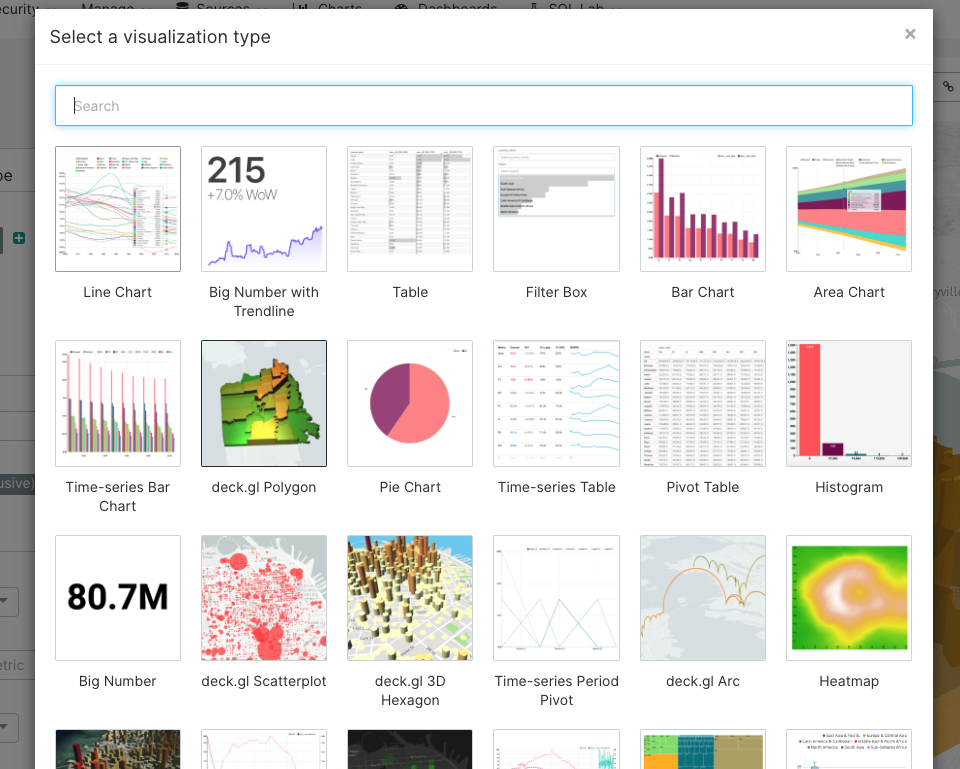-
Notifications
You must be signed in to change notification settings - Fork 14.5k
New issue
Have a question about this project? Sign up for a free GitHub account to open an issue and contact its maintainers and the community.
By clicking “Sign up for GitHub”, you agree to our terms of service and privacy statement. We’ll occasionally send you account related emails.
Already on GitHub? Sign in to your account
[WiP] - Dynamically import of viz plugins, take 1 #9324
Conversation
|
After seeing the PR, I added some more thoughts regarding dynamic plugins in SIP-38 For this PR itself: 1) The plugins are already using dynamic import under the hood. Adding dynamic import on the entire plugin level may not save much bundle size.Each
For example export default class LineChartPlugin extends ChartPlugin {
constructor() {
super({
// metadata does not use dynamic import since it is so small.
metadata: createMetadata(),
// this plugin uses dynamic import for the Chart part and will only load it when it is used.
loadChart: () => import('./LineChart'),
// this plugin uses dynamic import for the transformProps and will only load it when it is used. loadTransformProps: () => import('./transformProps'),
// this plugin uses dynamic import for the buildQuery part and will only load it when it is used.
loadBuildQuery: () => import('./buildQuery'),
// this is the plain object we want to move from incubator-superset
controlPanel: {...},
});
}
}It is also flexible for opt-out. If the part is so small. export default class BarChartPlugin extends ChartPlugin {
constructor() {
super({
// metadata does not use dynamic import since it is so small.
metadata: createMetadata(),
// this plugin does not use dynamic import for the Chart,
// which could be because it is small and does not require additional dependencies.
Chart: BarChart,
// this plugin does not use dynamic import for the transformProps function
// which could be because it is small and does not require additional dependencies.
transformProps,
// this plugin does not use dynamic import for the buildQuery function
// which could be because it is small and does not require additional dependencies.
buildQuery,
// this is the plain object we want to move from incubator-superset
controlPanel: {...},
});
}
}2) The current architecture requires plugin registration to be synchronous.What happen during the from ChartPlugin.ts register() {
const { key = isRequired('config.key') } = this.config;
getChartMetadataRegistry().registerValue(key, this.metadata);
getChartControlPanelRegistry().registerValue(key, this.controlPanel);
// notice that these register loader functions, not the actual code
getChartComponentRegistry().registerLoader(key, this.loadChart);
getChartTransformPropsRegistry().registerLoader(key, this.loadTransformProps);
if (this.loadBuildQuery) {
getChartBuildQueryRegistry().registerLoader(key, this.loadBuildQuery);
}
return this;
}All of these registration happens during the setup phase of the app (see all the files under Now in the application code, there are a few places that utilizes these registries to figure out what it should do based on the
const metadata = getChartMetadataRegistry().get(vizType);
if (metadata.useLegacyApi) { ... }None of this will work correctly if the plugin registrations are asynchronous, because the code mentioned above may be called before the dynamic import in this PR returns and enter the Example broken behavior will be
|
|
Points taken, and thank you for the insight. The approach in #9326 is fantastic for the time being. I'd hoped that this direction could be one small step toward some other means to load plugins via a manifest of sorts (config file or some other state), but that's a mission for another day. |

CATEGORY
Choose one
SUMMARY
Trying to use dynamic loading to pull in plugins. This seems to work fine with using the npm packages as you see in this code. However, if you switch the package name to a relative path pointing at the plugins /src folder, webpack tries to load it but chokes due to not applying the right loaders. Not quite sure what to do with it at this point.
Also note that for this to work, there will be a prerequisite change in
superset-uisince dynamic imports return promises. InPreset.tsyou need to change:to:
then:
cdinto/superset-ui/andyarn buildcdinto/superset-ui/packages/superset-ui-coreandnpm linkcdintoincubator-superset/superset-frontendand hitnpm link @superset-ui/corenpm devserver as normal.BEFORE/AFTER SCREENSHOTS OR ANIMATED GIF
TEST PLAN
ADDITIONAL INFORMATION
REVIEWERS
@suddjian @kristw It sure seems like this ALMOST works, but is apparently beyond my webpack knowhow. If you think we can get webpack loaders to somehow process the contents of the
/srcfolders of plugins, this might make things a LOT easier than dealing withnpm link.